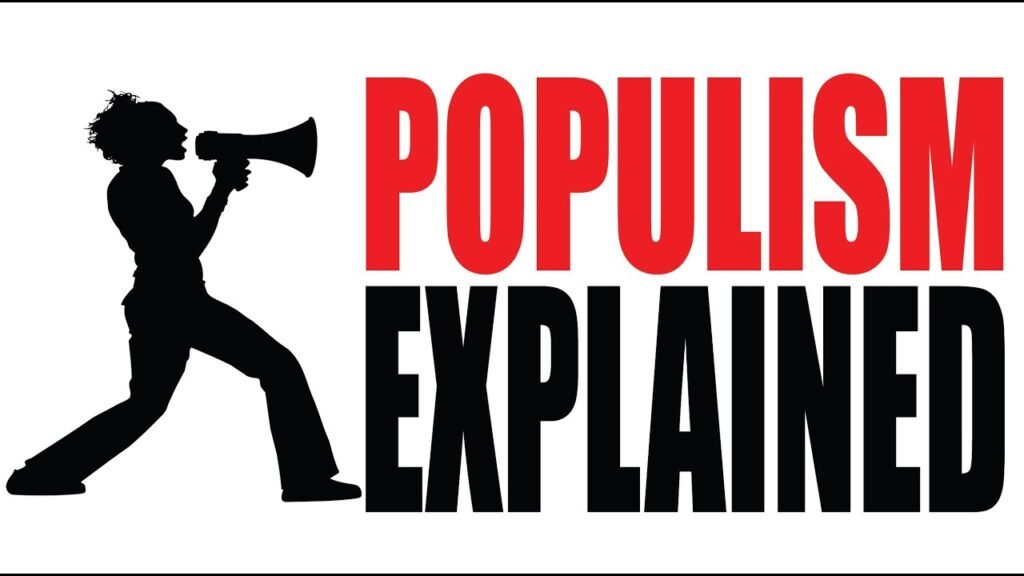
Populism: A Comprehensive Exploration
Unveiling the Populist Phenomenon
In this comprehensive guide, we delve deep into the world of populism, seeking to understand its essence, historical origins, variations, root causes, its impact on democratic systems and economies, and its enduring significance in contemporary politics.
Defining Populism: Bridging the Gap
Populism, as a political approach, strives to connect with ordinary individuals who feel their concerns have been overlooked by established elites. It is not confined to any specific ideology, as it can manifest across the political spectrum. Populism typically champions the “common man” and positions itself against political elites. Strategies may include direct engagement with the masses through rallies, social media, or alternative channels that bypass traditional political gatekeepers.
Tracing Populism through History: A Journey Back in Time
The roots of populism can be traced to the late 19th century, with movements like the People’s Party in the United States, also known as the Populist Party. This agrarian-populist movement emerged in response to dissatisfaction with political elites. In the 20th century, Latin America witnessed a surge of populism, with leaders like Juan Perón in Argentina advocating for the working class, illustrating how populism can adapt to different cultural and social contexts.
Contemporary Populism: A Global Phenomenon in the 21st Century
The 21st century has witnessed the global rise of populism. Movements such as the Brexit campaign in the United Kingdom and the election of President Donald Trump in the United States have been labeled as populist responses. These contemporary populist movements often emerge in reaction to perceived political failures, economic challenges, or concerns about national identity and sovereignty.
Exploring Different Shades of Populism: Varied Perspectives
Right-Wing Populism: Right-wing populism emphasizes nationalism, immigration control, and traditional values. For instance, Marine Le Pen’s National Rally party in France highlights French identity and opposes immigration.
Left-Wing Populism: In contrast, left-wing populism focuses on economic equality and social justice. Figures like Bernie Sanders in the United States represent this form, advocating for universal healthcare, free education, and wealth redistribution.
Unraveling the Causes of Populism: What Fuels It?
Populist sentiments are often fueled by economic instability, such as the 2008 financial crisis. The perception that financial bailouts favored the wealthy elite while ordinary people suffered can drive the rise of populism. Additionally, distrust in government and political exclusion are significant drivers of populism. In Italy, the Five Star Movement emerged from dissatisfaction with traditional political parties, positioning itself as an alternative to a corrupt establishment.
Effects of Populism: A Double-Edged Sword
Populism can simultaneously be a threat to and a revitalization of democracy. While it can foster engagement and representation, critics argue that it may also undermine democratic institutions by centralizing power and oversimplifying complex issues. In terms of the economy, the consequences of populism vary. For instance, Argentina’s populist policies initially led to growth but eventually contributed to economic challenges and inflation. Some argue that populist interventions can correct market failures and promote social welfare.
Debates Surrounding Populism: Diverse Perspectives
Arguments Against Populism: Critics contend that populism can be divisive, offering simplistic solutions to complex problems. They also argue that it may encourage authoritarian tendencies and undermine democratic values.
Arguments in Favor of Populism: Proponents of populism see it as a corrective force, giving a voice to those neglected by traditional politics. They argue that it can reveal genuine concerns and demand accountability from leaders.
The Intricate Role of Populism in Today’s World
Populism remains a multifaceted phenomenon that continues to shape the global political landscape. While it sheds light on often overlooked issues and engages more people in the political process, it also raises important questions about democratic governance, social cohesion, and economic stability.
Learn More:
-
BBC News – Populism:
URL: https://www.bbc.com/news/world-53394665
The BBC provides a series of articles and analyses on populism around the world, offering insights into its various manifestations and impacts. -
The Conversation – Populism:
URL: https://theconversation.com/us/topics/populism-10481
The Conversation features articles written by academics and experts, offering in-depth analysis and perspectives on populism and its political and social implications. -
Council on Foreign Relations – Populism:
URL: https://www.cfr.org/interactives/global-conflict-tracker#!/conflict/populism
The Council on Foreign Relations provides an interactive map and resources that track the rise of populism as a global political phenomenon and its implications for international relations.